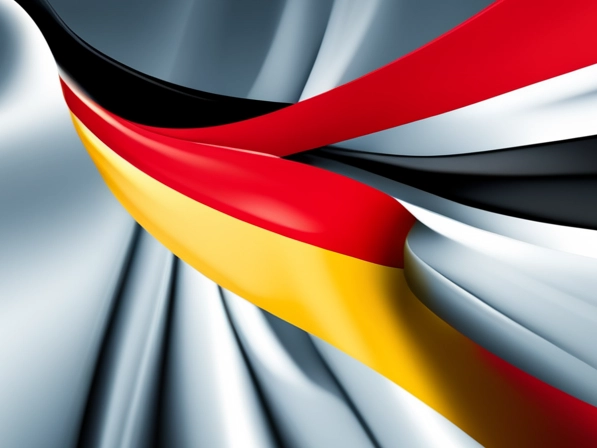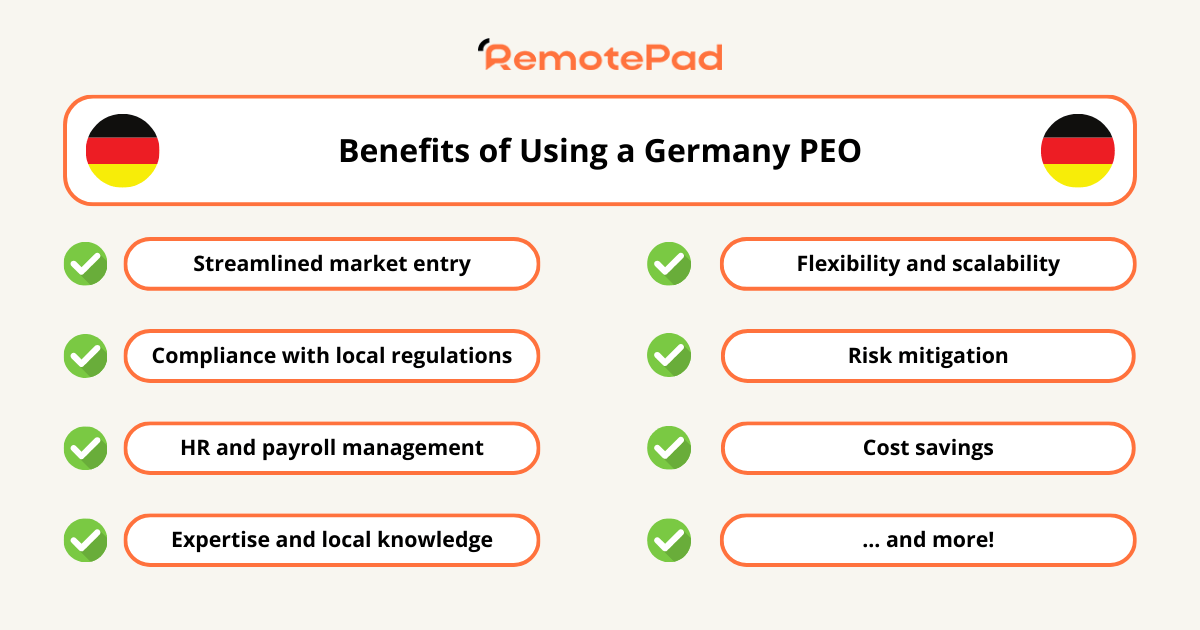A PEO in Germany enters into a three-way relationship with a client company and an employee, acting as the intermediary between the other two. Each partner has a specific role to play in this relationship.
Role of the Client Company
A foreign company looking to hire German employees must own a registered entity in Germany. Once it does, it can contract employees directly. It can use a PEO to outsource HR functions, including recruiting, hiring, onboarding, payroll, and more. However, it is the sole legal employer and must ensure compliance with all German labor laws.
Role of the PEO
On behalf of the client company, the PEO recruits appropriately skilled employees to be hired by the client. They then handle most HR responsibilities, including paying salary and deductions, managing paid leave and official holidays, and even playing a role in dismissals. They also help the client company to create contracts and attractive and appropriate compensation packages for employees. The PEO is essentially a co-employer and HR manager for the client company, using its knowledge of German and EU law to ensure compliance with labor laws.
Role of the Employee
In this tripartite relationship, the employee will be recruited by the PEO but contracted directly by the client company. They, therefore, have to negotiate their work and salary conditions directly with the client company. While their salary payment and HR management are functions performed by the PEO, the employee works directly for the client under that company’s management for day-to-day responsibilities.
Germany Labor Law
If you know a bit about German bureaucracy, you won’t be surprised that labor law is very precise and strictly controlled in this country. Employment rules are monitored by the Federal Employment Agency, known as the BA (Bundesagentur für Arbeit). There’s a lot to know about employee rights and regulations but here’s an overview of some major points.
Working Hours
Germans typically work eight hours per day, but this can be extended to ten hours for short periods. The maximum a German employee can work is 48 hours a week and workers must receive at least 11 hours of rest between shifts. Overtime compensation is not officially mandated and is typically decided on an individual basis or agreed on through collective bargaining.
Breaks
Breaks in Germany are not considered working time and are therefore unpaid. A worker must receive a 30-minute break after not more than six hours of work. After nine hours, they must receive a 45-minute break.
Holidays and Paid Leave
German employees are entitled to 20 days, or four weeks, of paid leave per year. This doesn’t include the 11 national holidays that Germans are entitled to during the year.
Maternity/Paternity Leave
German mothers are entitled to 14 weeks of maternity leave, six before delivering and eight after. In the case of multiple births (twins, triplets), this increases to 18 weeks. Starting in 2024, fathers or second parents receive just ten days of parental leave after a child’s birth.
Employee Social Contributions
German employees are required to make significant social contributions for health insurance (7.3% of salary), pension insurance (3.6-9.3%), long-term care insurance (1.525%), and unemployment insurance (1.3%). These contributions are matched or exceeded by the employer and are capped by contribution ceilings.


